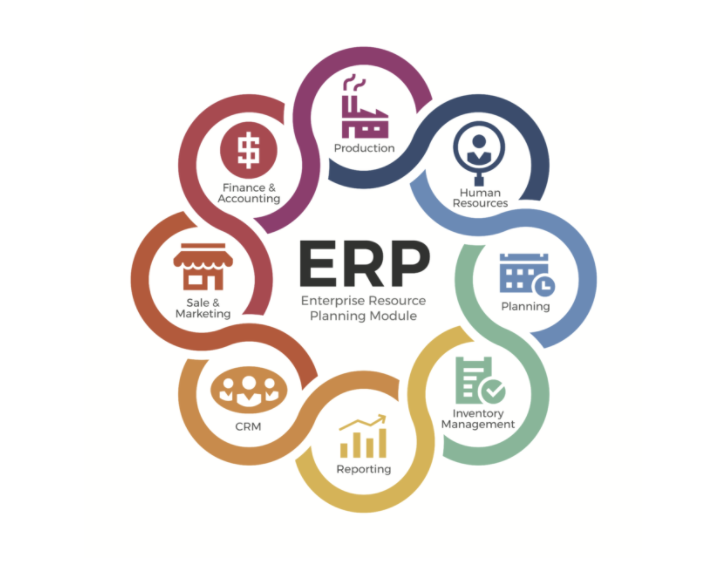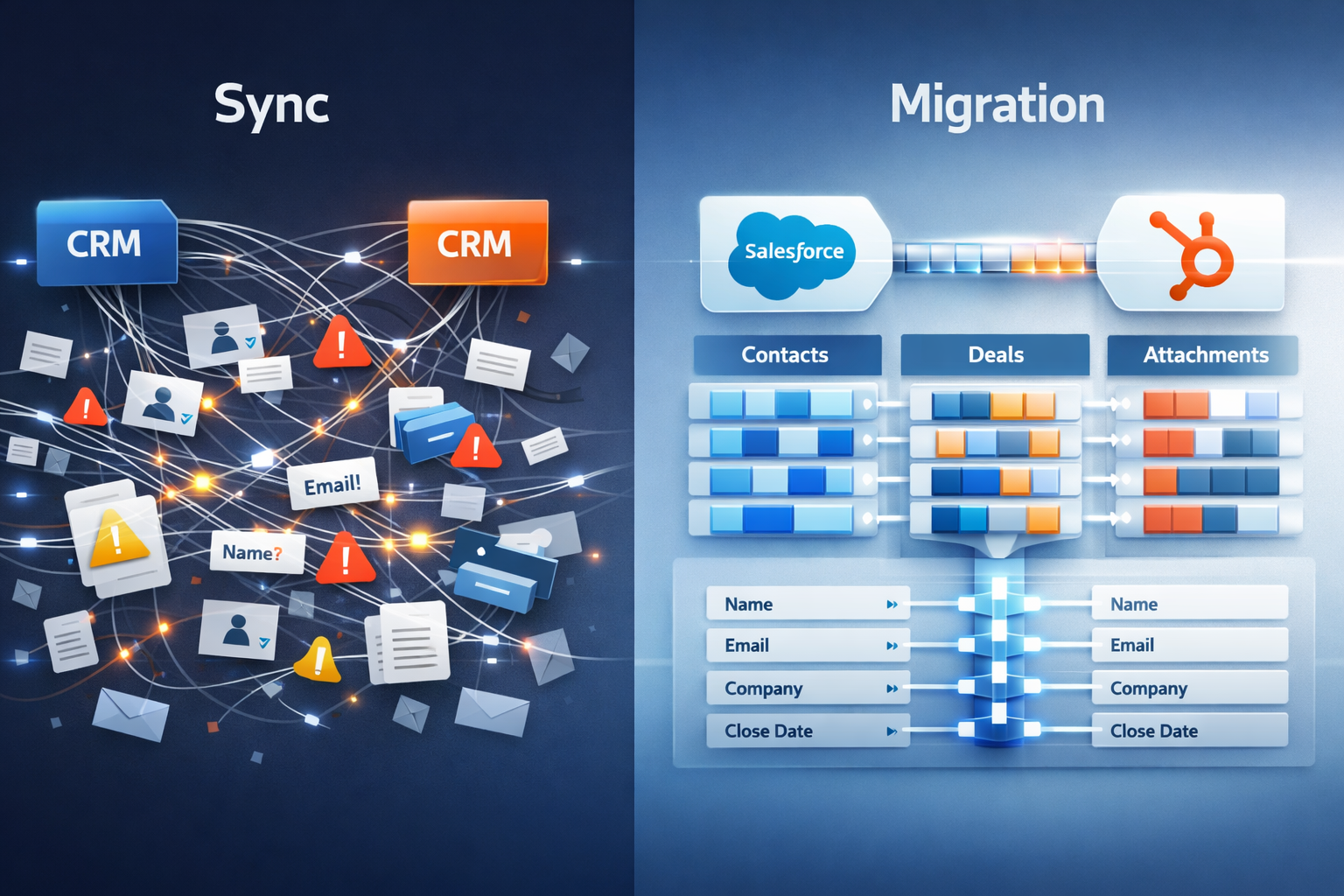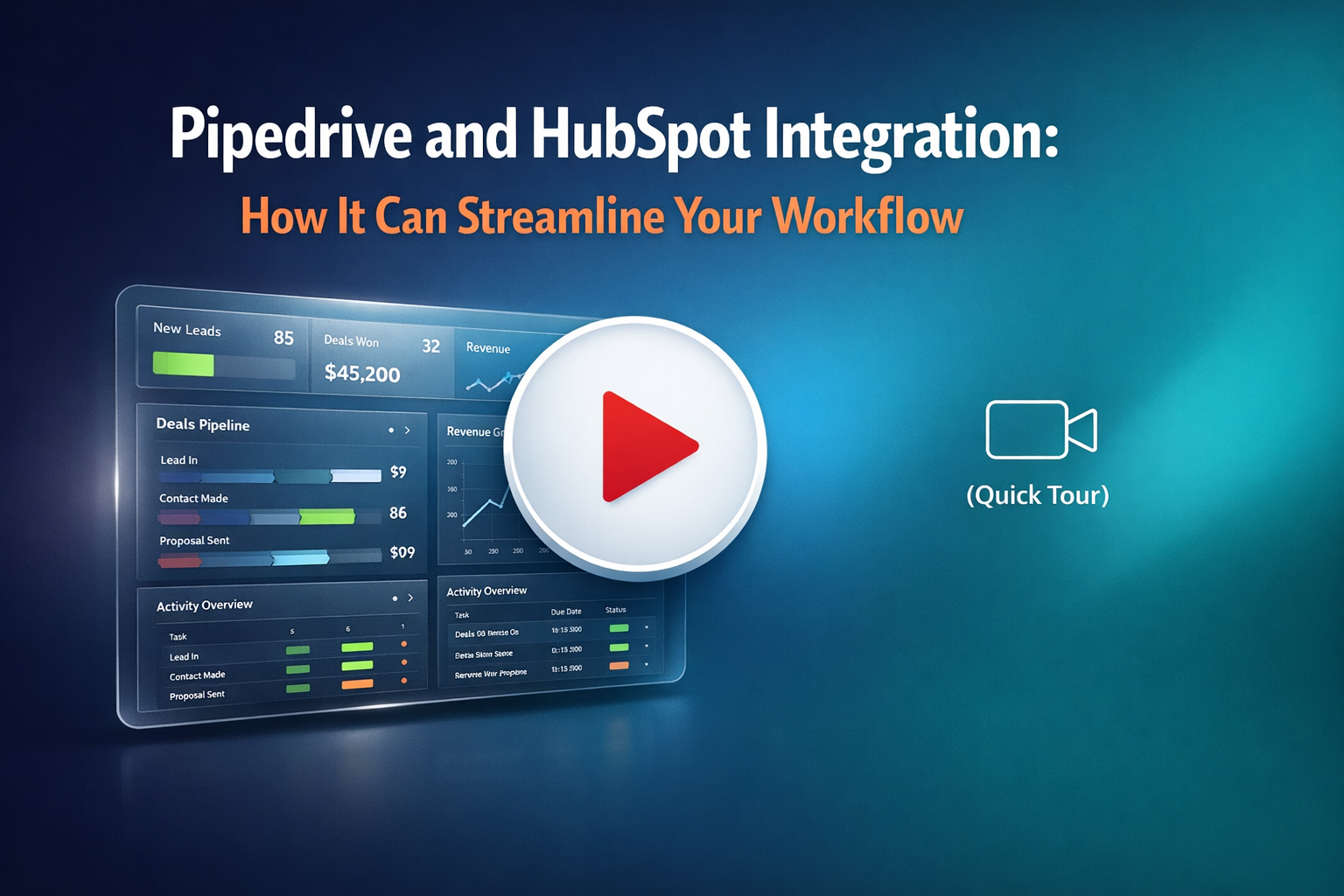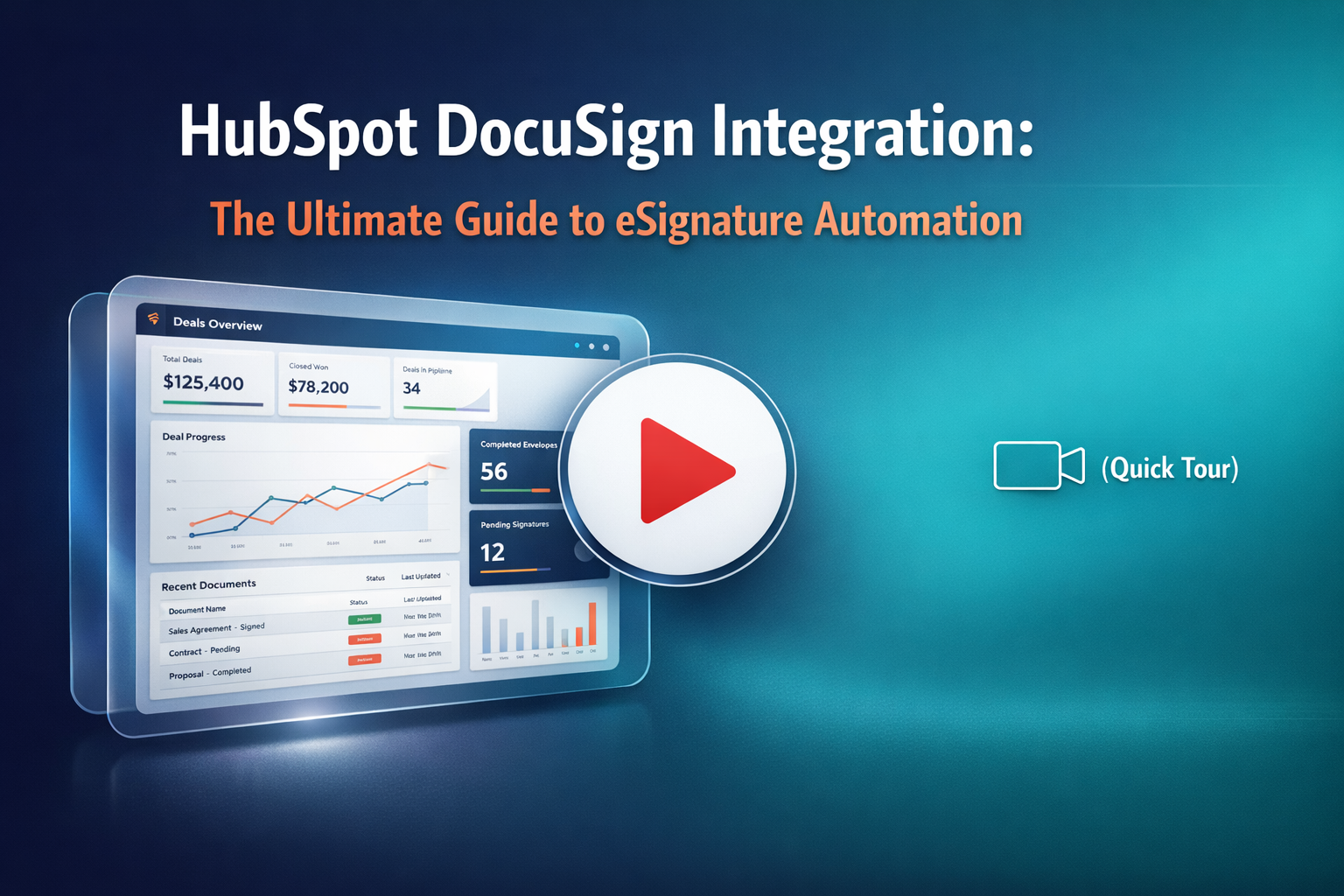Looking at CRMs and ERPs as two completely different systems will make businesses understand where to integrate them in their overall process. This article will discuss key differences between the two systems for you to understand their purpose and functions.
What Is CRM?
To view CRMs and ERPs as standalone systems, define what a CRM is. CRM stands for Customer Relationship Management. It’s a system that stores customer information which helps businesses be more efficient in dealing with their customers.
CRMs are excellent for improving business relationships. It helps businesses stay connected with their customers and better understand how to communicate with them. This system makes sure that every activity done by a company to their customer goes smoothly and efficiently to increase profitability. A great thing about a CRM is its excellent functionality in gathering customer information regardless of the channel. These systems can capture and store data about purchase history, contact name, email address, social profiles, interests, and hobbies.
The innovation of having these pieces of information on a single database makes knowing a customer a lot easier; in the past, acquiring customer data needed to be done manually. But with current technology, a single press of a button can present detailed information about a single customer.
What Is ERP?
ERP stands for Enterprise Resource Planning. It is a system that automates business processes to make its employees more efficient and productive. This system is typically used by businesses growing and becoming prominent. An ERP system can significantly help the different departments of a company. It helps business teams manage activities on accounting, human resources on employee onboarding, project management, frontline training, risk management, inventory, and many more.
Most ERPs can collect information from various departments and put it on a single database. This makes it easier for team leaders and management to see the status of projects and other tasks.
The systems in the ERP work by using a standard data structure. Every user in the business can automatically access the data entered in this system by a single department. This particular function makes leaders have a pulse on the company and allows them to be on top of every project.
An ERP in action would be how a salesperson runs a customer’s purchase into the system; the ERP will automatically deduct the item from the overall inventory. It will also notify the business if the stock is running low. What was done manually can now be delegated to a system that does the job effectively. With the help that ERP systems contribute to a business, it’s difficult to neglect this particular software. It makes business processes more accessible and automated. It rids most manual work, which allows employees to have more time to focus on things that matter.
Benefits Of CRM To A Business
One of the reasons why CRMs are made is to have one central hub that stores their customers’ data and makes some of their lead capturing processes easier. A CRM system can simplify the sales and marketing team to create scripts and campaigns tailored to their customers’ needs. An example of a CRM widely used by salespeople would be a predictive dialer. People in sales use this particular system to increase the number of calls done daily and have better conversion numbers. Most CRMs are used in marketing, sales, and customer service teams. They make specific processes automated and much simpler to do.
To understand better how CRM systems help your business, here are the significant benefits that it brings to their users:
Better customer service
Businesses can provide better customer service since a CRM lets the management know more about their customers’ wants. They now have ideas on what makes a pleasant customer experience and their needs. A business that efficiently uses a CRM would also have the advantage of knowing how their market wants to be treated. If a company knows how to treat its customers suitable, it will increase its number of paying customers and convert those people to loyal business advocates. Service-based businesses significantly use a CRM since the data and information stored in the software can improve how the industry treats its clients. This works well for companies in physical fitness, addiction treatment services, daycare, pet services, physical therapy services, and many more.
Improved customer retention
Once a business understands how to treat and serve its customers better, customer retention will be a much simpler process. The company can effectively create strategies that align with its CRM data. A CRM can provide customer sentiment, purchase history, likes, and interests. A business can leverage this data to make better business decisions and strategies. As you use your CRM efficiently, you will positively impact most of your processes and metrics. You will see a higher retention rate, lower cart abandonment emails, and a more extensive loyal customer base.
More effective marketing campaigns
A marketing campaign like a banner ad or a social media post can only be successful if presented so that the audience likes it. The chance of success also goes up if it specifically addresses the needs and problems. Given the number of data that a CRM can store and present to a business, marketing teams can leverage these elements to make their campaigns more relatable and exciting. An example would be the banner ad above. The company didn’t present their material using the traditional blog post or video content on their DIY green screen guide because they know it is not what their audience wants. They opted for a free eBook instead because it will get more engagement, and in return, they will have email addresses added to their CRM system.
Improved number of sales and profitability
If a business does all the above efficiently, increased sales are a natural product of those processes. A sales and marketing team that knows a lot about its audience can close more deals and convert interested prospects to paying customers.
Reports made easy
CRM reports are structured to help users be smarter with their customers, trends, interests, and problems. Words here could also be easily extracted. The CRMs out in the market today are excellent in compiling data and integrating them to create an engaging report.
Build a business edge
With the number of information, data, and reports that CRMs can produce, the process of finding a business edge is much easier than ever. When the business puts in the time to analyze their CRM data, they develop an edge over their competitors. An example of a transparent edge developed by analyzing customer actions, feedback, and behaviors would be how it utilizes a door-to-door service for its clients. It’s a new strategy that’s not widely used in their industry.
Benefits Of ERP To A Business
Improves employee productivity
Since ERPs can help automate business processes, employees focus more on their daily tasks and activities. This makes them productive and can allocate more time to things that matter. When used correctly, an ERP can reduce or eliminate repetitive manual processes that usually take a lot of time to do. These can be purchasing orders, restocking inventory, monitoring delivery, manufacturing products, and many more.
Better collaboration and workflow
Since ERP systems can help with project management and workflow, collaborating teams can easily access the data they need. This makes the overall collaboration process seamless and straightforward. Given that multiple teams use a single database, the information gathered here makes teamwork easy. The ERP system also gives employees the opportunities to look at the overall progress of tasks and projects. It even gives them the ability to have access to the company’s numerous data and resources, which makes them see the whole state of the company.
Having access to the progress of projects allows employees to gauge if they need to hasten their tasks and activities. It also makes them see how other members of the team are performing. This makes them motivated to do better and focus on finishing their tasks, so they are delayed.
Easier reporting and planning
Since an ERP system can help with reporting certain aspects of your business, these things don’t need the intervention of any IT expert anymore. Employees can now generate reports with a single click. This makes them focus more on planning solutions to improve the metrics given by the news. ERPs can produce various financial, operational, analytical, and inventory reports. Understanding data and structuring them to a presentation format would usually take several weeks to be done by employees. Fortunately, with the help of ERPs and modern technology, such activity can be done just by clicking buttons.
Inventory management
One of the processes that ERP helps businesses would be in their inventory management. The software can help provide insight into orders, refilling, and reviewing supply needs. A sound ERP system can also help align your product inventory with your customers’ current and future needs. An ERP can help analyze a business’s spending and purchases if appropriately integrated. This makes the system determine your inventory needs, lower your product waste, and perform better product evaluation. An ERP can significantly help businesses with their products and warehouses. This includes companies that produce adult and kid masks, casual shirts or streetwear, Valentine’s Day lingerie or formal clothes, sneakers and leather shoes, jeans, and track pants.
CRM Integrations For Businesses
Email integration
CRM can be integrated into your emails so the system can capture the recipient’s details, their message, and any necessary attachment. This will allow your involved teams to see who responded, what was said, and what needs to be answered. The system can also present what emails had high open rates and bounce rates. A CRM can give tools and templates to make email marketing a breeze and a worthwhile activity. Given the number of data that a CRM solution can provide for a business, marketers can create successful email marketing campaigns to increase conversion and engagement. An example of an email and CRM integration could be seen on High Desert Pure’s email newsletter signup form above. The information provided here goes directly to the business’s CRM software which will be added to their database. The CRM system will also automate the type of message the recipients will receive based on which box they ticked.
Social media integration
Since CRMs hold a lot of information about your customers, it’s only fitting that you integrate your CRM into social media. Social media is a goldmine of information about your customers. Excellent CRM systems can capture prospects and generate leads for your business on various platforms. The system should be able to store new reports based on your customers’ social media activity. It should determine which video-sharing platforms your audience is active on, what social media platform they often use, and what content they engage with the most. The information stored through various social media platforms allows businesses to have better ideas on engaging and approaching their audience digitally. This will enable them to create better social media campaigns that get attention in their niche.
Live chat integration
Integrating CRM with your live chat allows the system to capture leads for your business. Utilizing this software on top of your live chat can capture information and conversation history to prepare you the next time you engage with the customer. Additionally, if the CRM gathers enough data about your customers, its reporting feature can collect the data and provide a report on what keeps your customers engaged. This gives you ideas on how to create an excellent personalized customer experience.
Customer service integration
Customer service or customer support is a great place to gather information about your market. This aspect of your business contains your customers’ complaints, surveys, feedback, and reviews regarding your business. A great CRM software can integrate customer service data with more extensive databases in your business’s systems. It can automatically link customers from one database to another and create a more in-depth information database regarding each person.
Leads and prospects system integration
Since CRMs can store a ton of data and information for a business, you can integrate it with your leads system to make your sales team more knowledgeable of a particular customer or prospect. Combining these two systems can allow you to determine if the person has inquired about your business before. It can also show their previous engagement with the company on whether they have bought something from you or are a previous client. This makes your sales team more informed about particular customers, which allows them to utilize a more effective selling strategy based on the information about the customer.
ERP Integrations For Businesses
Project management integration
Project management is a process present to almost every business in this world. This particular process presents all information relating to current projects being worked on by different teams in the industry. This shows the progress of the project, tasks needed to be done, deadlines, and other necessary information. ERP integrated with project management helps all teams see the current status of the projects. Department heads will know what projects are ongoing, done, and have not started yet. It also allows scheduling easy, especially when a team only starts to work after the other department is finished.
Financial process integration
We all know how much of a hassle it is to do the financial processes involved in a business. It requires receipts, retrieving invoices, analyzing spreadsheets, and calculating many financial elements. Because of the inaccuracy of results and challenges given by these processes, integrating an ERP system here makes this process easier. ERP systems like cloud accounting services and software have been created to address this particular business process. Rather than manually computing and analyzing many financial elements, ERP systems can automatically do this for you. It can do all the calculations and report them through charts and graphs.
eCommerce integration
Having an ERP means that data happens in real-time. Plus, the data here is only encoded once. It doesn’t need to be manually updated every time a purchase is made. The ERP software must do all of these things automatically. It even shares it with the customers on how many product stocks remain in your business. RPs can help with are other aspects of inventory in our product categories, related products, product substitutes, product availability, product description, and many more. All of these things only needed to be encoded once. The ERP will be the one presenting this information to interested individuals.
Calendar integration
As your business grows, the number of activities you need to do increases in number. More clients to call, more meetings to attend, and more issues to address. This would produce a hectic schedule which can make you miss out on some essential activities. To make sure that you don’t miss a single important task or event, ERP is integrated into calendars to schedule and arrange workloads properly. This will allow notifications about upcoming events or meetings that you need to attend. It rids the manual process of constantly checking the calendar for any upcoming or missed events in the business.
Key Differences: CRM vs. ERP
Although both systems help businesses with different processes and growth hacking issues, there are still fundamental differences between the two:
-
-
- CRM is software designed to let businesses know more about their customers. An ERP is software that helps companies with their processes, making it automated and effortless.
-
- CRM can be considered the software that handles the “front office” while ERP takes the “back office.”
-
- ERP manages accounting, inventory, payables, manufacturing, while CRM manages contacts, customer activities, marketing, and sales opportunities.
-
- CRM is usually used by marketing and sales teams. ERP is used by accounting, human resources, and warehouse teams.
-
- CRM increases customer conversion and retention rate while ERP speeds up production, tracks inventory, and manages delivery.
-
- CRM manages customers. ERP contains the business.
-
- ERP gives seamless process management while CRM provides streamlined marketing campaigns.
-
- CRM focuses on market opportunities, while ERP focuses on product development.
- CRM provides sales leads while ERP gives improved logistics.
-
Conclusion
CRMs and ERPs might have their differences, but both systems’ main goal is to put your business in a better position. Both help with processes and automating specific actions that allow your employees to focus on more important things. It rids repetitive manual processes that are boring and take a long time to finish. CRM partnered with ERP means that a business is trying to be the most efficient version of itself. It makes sure that sales and marketing are made correctly while the business’s accounting and back-office side are in an excellent state.





